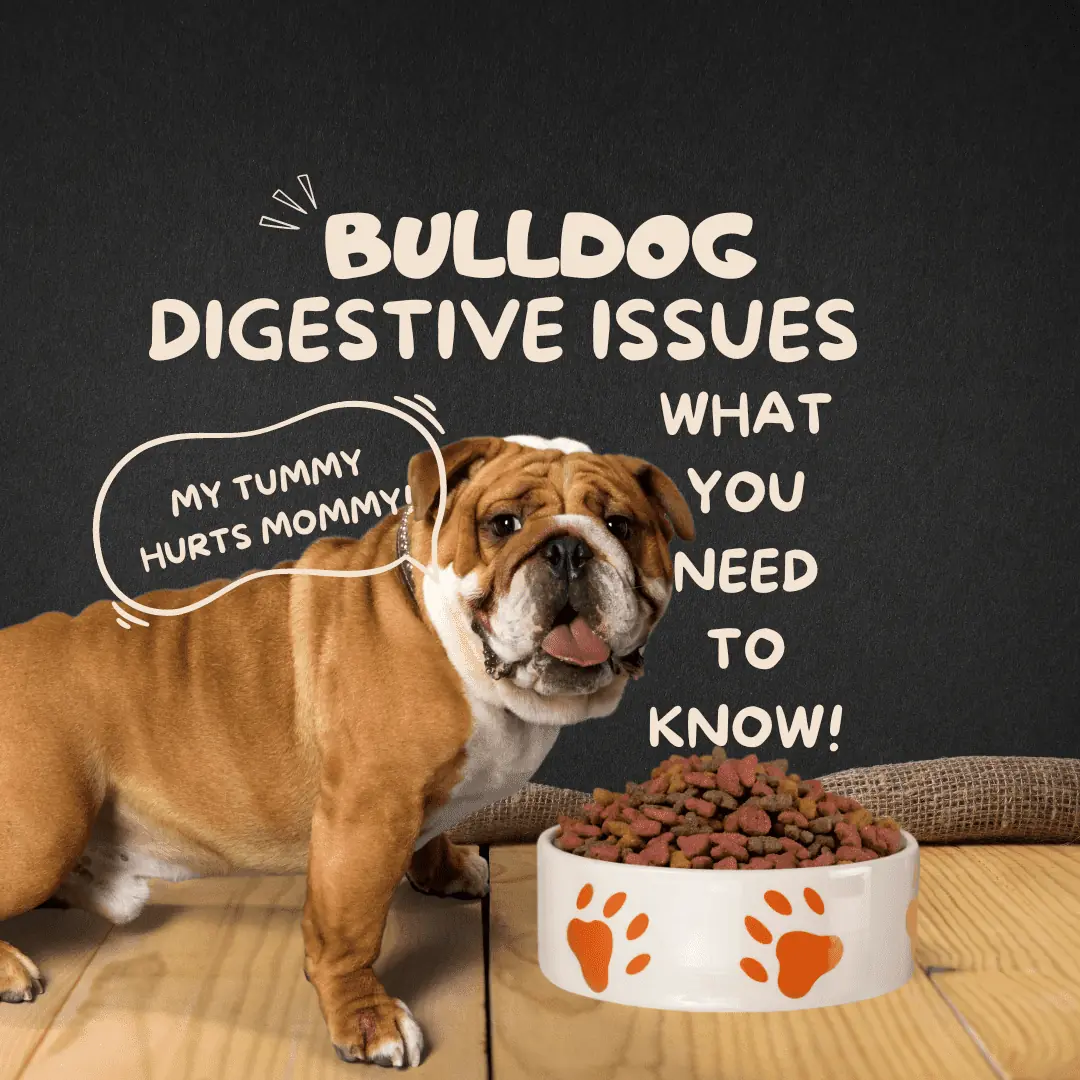English bulldogs, with their distinctive wrinkles and adorable faces, have become a popular breed, but they can also be prone to digestive problems that can cause discomfort and distress. Here is what you need to know about digestive issues in English bulldogs, including causes, symptoms, and treatments.
Understanding Digestive Issues in English Bulldogs
Digestive issues in English bulldogs can range from minor digestive upsets to serious health problems. Common digestive issues in English bulldogs include upset stomachs, diarrhea, vomiting, and poor appetite. These digestive problems can be caused by a variety of factors, such as dietary changes, infections, parasites, and food allergies.
Are Bulldogs prone to stomach problems?
English bulldogs are susceptible to digestive problems due to their unique anatomy. They have a short snout, which can make it difficult for them to digest their food properly.
Additionally, bulldogs are prone to food allergies and sensitivities, which can cause digestive issues. Some common food allergens for Bulldogs include chicken, dairy, wheat, and corn.
Overfeeding and Obesity
One of the most common causes of digestive problems in English bulldogs is overfeeding and obesity. These dogs have a tendency to eat more than they need and can quickly become overweight, which puts extra pressure on their digestive system and can cause a range of health problems, including indigestion, constipation, and vomiting.
Inadequate Diet
Another common cause of digestive problems in bulldogs is an inadequate diet. Feeding your dog a diet that is lacking in essential nutrients, or feeding them human food, can lead to digestive issues such as diarrhea, bloating, and flatulence. It’s important to feed your bulldog a well-balanced diet that is appropriate for their age, weight, and activity level. There are some great supplements available if you feel that your furry friend isn’t getting what they need. We like the PetHonesty Multi vitamin chew https://prf.hn/l/QxY2l5l
Food Allergies and Intolerances
Food allergies and intolerances can also cause digestive problems in bulldogs. Common food allergens include beef, dairy, and wheat, and symptoms can range from diarrhea and vomiting to skin irritations and ear infections. If you suspect that your bulldog has a food allergy or intolerance, it’s important to speak to your veterinarian to determine the best course of action.
Stress and Anxiety
Stress and anxiety can also cause digestive problems in bulldogs. These dogs are sensitive to changes in their environment and routine, and can experience digestive issues as a result of stress and anxiety. To reduce stress and anxiety, it’s important to provide your bulldog with a consistent routine and a calm and peaceful environment.
Medical Conditions
In some cases, digestive problems in bulldogs may be caused by underlying medical conditions, such as parasites, infections, or inflammatory bowel disease. If your bulldog is experiencing digestive problems, it’s important to have them checked by a veterinarian to determine the underlying cause.
Symptoms of Digestive Issues in English Bulldogs
The symptoms of digestive issues in English bulldogs can vary depending on the cause of the problem. Some common symptoms include vomiting, diarrhea, and poor appetite. If you notice any of these symptoms in your dog, it is important to take them to a veterinarian for a proper diagnosis and treatment.
Treating Digestive Issues in English Bulldogs
The treatment of digestive issues in English bulldogs will depend on the underlying cause of the problem. In some cases, dietary changes and/or medication may be needed to treat the issue. Your veterinarian will be able to advise you on the best course of treatment for your English bulldog.
Prevention of Digestive Issues in English Bulldogs
What can I feed my English bulldog with a sensitive stomach? To prevent digestive issues, it is important to feed them a balanced and nutritious diet.
You should also avoid giving them table scraps and human food, as these can upset their digestive system. Additionally, it is important to monitor your English bulldog’s weight and keep them at a healthy weight to reduce the risk of digestive problems.
Biggest Takeaways on bulldog digestive issues:
Digestive problems in English bulldogs can have a range of causes, from overfeeding and obesity to stress and anxiety, and medical conditions. By being aware of the common causes of digestive issues in these dogs and taking the appropriate steps to prevent or treat them, you can help keep your bulldog healthy and happy.
If you suspect that your bulldog is experiencing digestive problems, it’s important to speak to your veterinarian as soon as possible. With the right care and treatment, you can help your bulldog enjoy a healthy and happy life.
MUST READ: Top 10 Health Issues Every New English Bulldog Owner Should Know
MUST READ: The Surprising Truth About English Bulldog’s Eye Health: Common Eye Problems
MUST READ: English Bulldog Ear Infection Issues What you need to know
MUST READ: 4 Reasons English Bulldogs Have Breathing Issues: Causes, Treatments, and Prevention Methods

